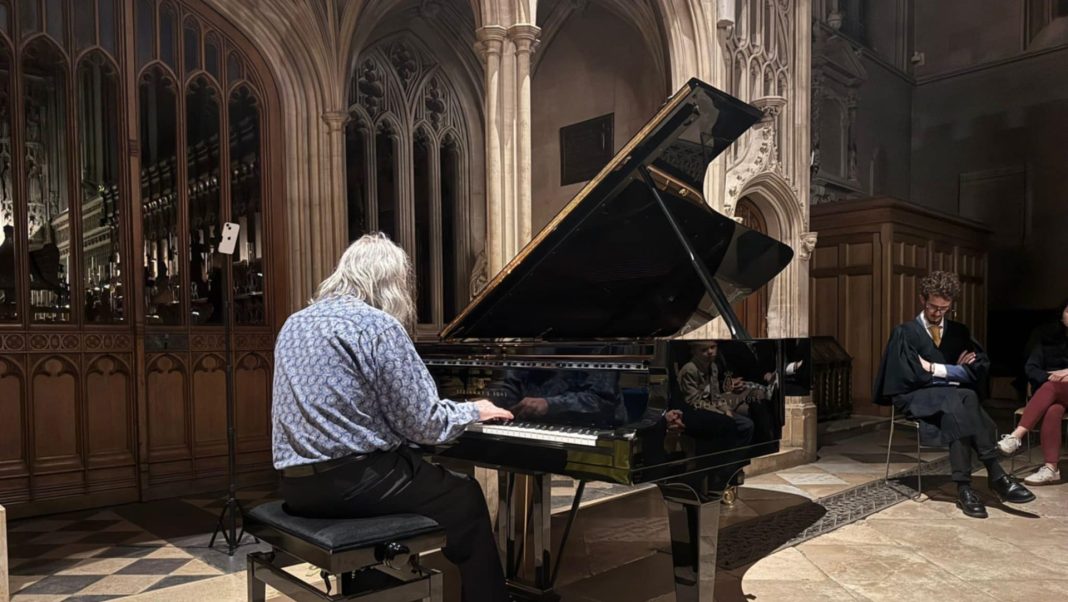Ukrainian pianist Lubomyr Melnyk took the stage in Magdalen College Chapel and the Holywell Music Room on Monday 3rd and Tuesday 4th November to showcase his unique style, called ‘Continuous Music’. In an informal lecture at Balliol College’s Hall, Melnyk spoke in detail about the origins and philosophy of his craft, as well as giving a dazzling partially improvised performance. True to its name, Continuous Music is a style that flows in an ‘unbroken line of sound’ and is unbelievably fast – Melnyk is considered to be the fastest pianist in the world with the ability to play 19 notes per second with each hand. The music is not just about speed, though, but also a different relationship to the instrument than in classical piano, which Melnyk greatly admires. He describes continuous music as a ‘completely new world of the piano and of the pianist’, where there is a unity between the two, which he compares to the roots of a tree. Amusingly, he describes how the style was born ‘through philosophy, through mathematics, through religion and, yes, because I was a hippie.’
With his long beard and philosophical musings, Melnyk definitely looks the part of a 21st century spiritual leader with hippie roots, but his practice is also rooted in political realities – he speaks of how his Ukrainian identity greatly informs the music he makes. According to him, Ukrainians are the only people ‘spiritually crazy’ enough and who have gone through enough to create Continuous Music.
Melnyk claims that he can make the piano ‘sing’, and this certainly rings true after hearing him perform – when the piano is played that quickly, melodies and rhythms that aren’t actually in the score can be heard, as resonant overtones overlap and add themselves to the already rich texture. Unfortunately, this beautiful effect is lost in the process of recording, making this a music that has to be experienced live.
In terms of harmonic structure, the music adheres to the familiar traditions of Western functional harmony, and in this sense is unremarkable. If it wasn’t for its incredible speed and continuity, its gradually built-up textures and repetitive chordal structures could be likened to Ludovico Einaudi’s easy-listening instrumental music. Einaudi is a popular classical composer who, like Melnyk, has been inspired by minimalism. Melnyk has experimented with atonalism in the past, but found that it merely provided aesthetic beauty and could not evoke the same level of emotion that functional harmony could. He describes moving over to a mostly functional harmonic language as the music being ‘purified’, a view that could be questioned because of the Eurocentrism that it implies – there’s an underlying sense here that standard Western harmonic structures drawn from classical music are spiritually superior to other harmonies. Rather than through harmony, his music is set apart from other contemporary classical music through the virtuosity of his style, and the spiritual inclinations of his work.
The talk had a tragic air – this is a music that only reaches its full potential when performed live, and Melnyk only has a few students, none able to perform this music to as high a standard as him. Whilst I did not agree with all of Lubomyr’s philosophical musings about music (he described jazz as ‘spiritually revolting’, for example), Continuous Music made for an enthralling listening experience.


